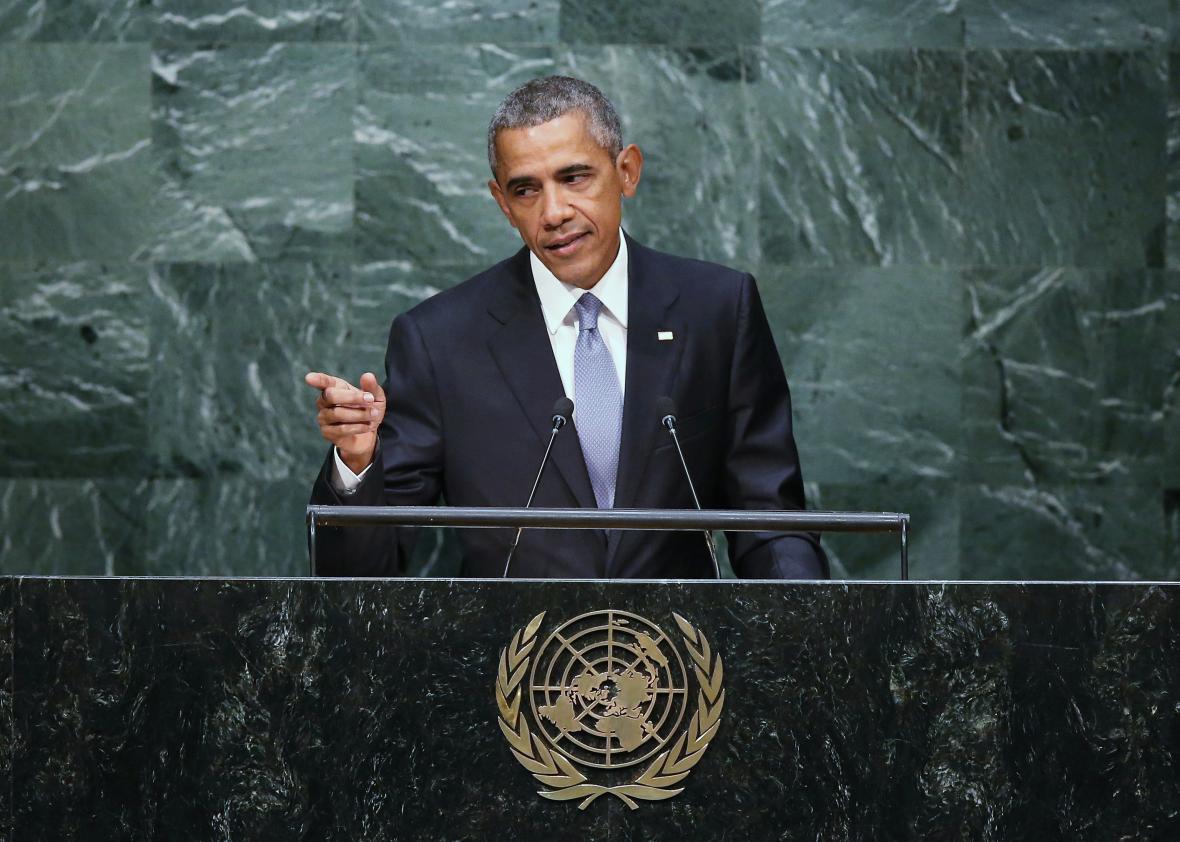Speaking to the United Nations General Assembly on Monday morning, President Obama rejected the idea of Bashar al-Assad remaining in power as part of a negotiated settlement in Syria. His remarks appeared to be aimed directly at Russian President Vladimir Putin.
Putin, who will address the assembly later Monday morning and meet with Obama Monday evening, has taken Washington by surprise in recent weeks by substantially increasing Russia’s military presence in Syria and forging an alliance with the governments in Iran, Iraq, and Syria to share information on ISIS. Putin, who has backed Assad since the beginning of the conflict, argues that supporting his government is the only way to effectively battle ISIS. But in Monday’s speech, Obama rejected the notion of partnering with “tyrants like Assad who drop barrel bombs on innocent children.” He said that while the U.S. is willing to “work with any nation including Russia and Iran” to end the conflict in Syria, “there cannot be after so much bloodshed, so much carnage, a return to the status quo.”
The president blamed Assad’s violent response to peaceful protests in 2011 for creating the chaos that allowed groups like ISIS to grow.
He continued: “Realism dictates that compromise will be required … realism also requires a managed transition away from Assad and to a new leader.” Obama has gotten into trouble by drawing “red lines” in the Syrian conflict before, and Monday’s speech left him a little bit of wiggle room. Secretary of State John Kerry has said recently that while the U.S. position is that Assad must step down, the timing of his departure is negotiable. Obama’s statement also shouldn’t be taken as an indication that the U.S. will use military force to push Assad out—something it’s scrupulously avoided throughout the conflict.
Even beyond the portion on Syria, much of Obama’s speech seemed crafted as a prebuttal to Putin. “There is not a conspiracy of U.S.-controlled NGOs that expose corruption and bring down leaders,” Obama said, contradicting Putin’s contention that U.S. support led to the overthrow of the pro-Russian government in Ukraine and other former Soviet countries. “A government that suppresses peaceful dissent is not showing strength, it is showing weakness and it is showing fear,” he continued.
Obama denied that the U.S. has economic interests in Ukraine but said that the U.S. “cannot stand by as the territory and sovereignty of a nation is flagrantly violated.” Refuting what he said was the inaccurate picture painted by Russia’s state-controlled media, Obama declared, “We want a strong Russia that’s invested in working with us to strengthen the international system as a whole.”
While Syria and Russia took up much of the speech, Obama earned his biggest applause by discussing the normalization of relations with Cuba and stating “I’m confident that our Congress will eventually lift an embargo that should not be in place anymore.” Realistically, though, he might have a better shot with Putin than Congress.
